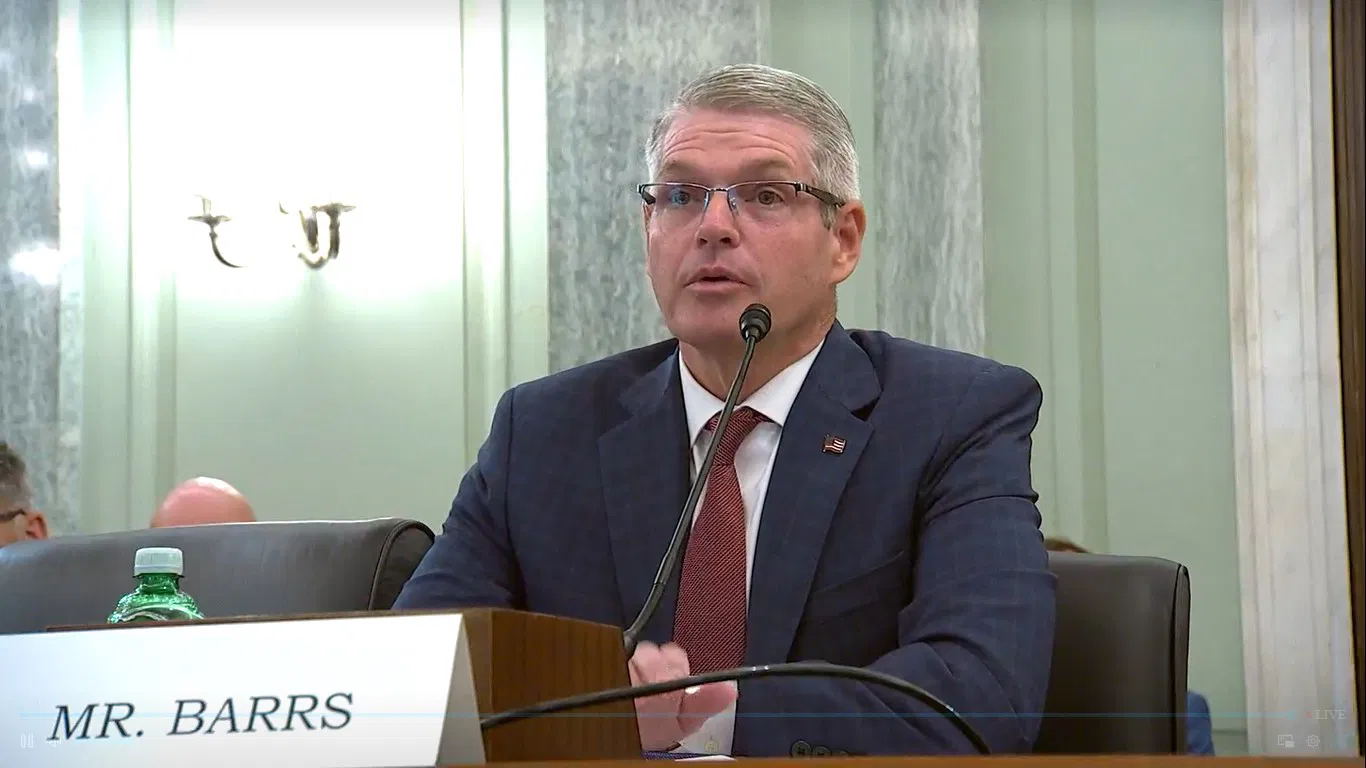輸送における安全とコミュニケーションの理解
デレク・バー氏がFMCSA(連邦自動車運送事業者安全局)に指名されたことで、輸送の状況を再構築する可能性のある重要な安全と執行に関するアイデアについての議論が始まりました。議員らの前に召喚されたバー氏は、法執行機関での経歴が、検査官と運転手の間の効果的なコミュニケーションを通じて道路の安全を確保するための戦略にどのように役立つかを強調しました。
コミュニケーションの壁
バールズは証言の中で、トラック運転手の英語能力の重要性について説得力のある主張を展開しました。彼は路傍検査官としての自身の経験から、「車両の完全な検査を行い、下に入ってブレーキをチェックする場合、運転手とコミュニケーションを取れる必要があります」と述べました。これは、道路の安全と検査官自身の安全の両方にとって不可欠です。
今日の多様な社会において、運転者が指示や道路標識を理解できることは、安全性に影響を与える重要な要素です。Barrsの実践的な経験は、コミュニケーションの破綻がどれほど危険な状況につながるかを理解するのに役立っています。
経験がコミットメントを推進する
元々フロリダ出身のBarrs氏は、フロリダ・ハイウェイ・パトロールで自動車運送事業者安全支援プログラムを率いるなど、輸送安全において重要な役割を果たしてきました。彼の豊富な経歴は、トラック輸送業界に影響を与える複雑さと、それに対処するために必要なステップを理解する上で役立ちます。
課題を乗り越える:貨物詐欺と規制当局の対応
上院での議論が進むにつれて、テッド・クルーズ上院議員は、メキシコのトラック運転手に発行される不正な商業運転免許証(CDL)の増加など、業界が直面している重大な安全性の問題を取り上げました。バース氏は、すべての運転手が資格を持ち、安全であることを保証することの重要性を認め、「運転手が資格を持ち、安全であることを保証することは、商用車の安全性に関して我々が行っていることの最重要事項であるはずだ」と述べました。
この課題は、貨物輸送業務における運転手の身元確認の有効性に対するより広範な懸念を浮き彫りにしています。Barrs氏は、この問題に取り組む決意を強調し、FMCSAの自動車運送業者登録システムを強化して、運転手申請者に対するより厳格な身元確認を実施することを約束しました。
全国的な影響
Barrs氏は、貨物詐欺への取り組みはテキサス州や単一の州にとどまらず、トラック輸送業界やより広範な経済を阻害する全国的な懸念事項であると指摘しました。彼は、詐欺行為を行う者が確実に報いを受けるように、さまざまな機関と協力することを目指しています。貨物詐欺はコストを積み重ね続けており、全国の物流および流通ネットワークに重大な影響を及ぼしています。
道路上のイノベーション:自動運転車と安全装置
承認公聴会で、バースは、自動運転車技術の輸送業界への統合に関するトピックを取り上げました。彼は、従来の路傍安全装置を遠隔で展開できる電子ビーコンに移行させることに関心を示し、業界を技術進歩の新時代へと推進しました。
この変化は、FMCSAの安全強化という目標に沿うだけでなく、自動運転トラックの実装に向けた大きな飛躍にもなります。しかし、Barrs氏は、現在の規制がそのような技術の導入を制限しており、業界のイノベーションにとって課題と機会の両方を提示していることを認めました。
議員が提唱する安全性
技術に関する議論と並行して、彼とNHTSA指名者のジョナサン・モリソンは、側面アンダーライド保護と脆弱な道路利用者に関する質問を受けました。安全性の向上と費用対効果のバランスは、業界内の新たな安全対策を法制化する上で依然として重要です。
ベン・レイ・ルハン上院議員の目を通して見ると、将来の規制にすべての道路利用者(歩行者、自転車利用者、オートバイ利用者)を含める取り組みは、輸送安全の重要な側面です。モリソンの規制の枠組み内での協力へのコミットメントは、何よりも安全を優先するコミュニティを示しています。
ロジスティクスの洞察の統合と将来への影響
これらの議論が展開するにつれて、FMCSAが課題と進展に満ちた領域を航行していることは明らかです。安全規制、技術の進歩、そして真のコミュニケーション戦略の相互作用は、全国の物流フレームワークに大きな変化をもたらす態勢を整えています。これは単なる規制遵守の問題ではありません。運転手と一般の人々の両方にとって、より安全な環境を育むことなのです。
茨の道ではないかもしれませんが、政策と慣行の堅牢性を確保することで、すべての人にとってより安全な道路への道が開ける可能性があります。Barrsのような人々がこれらの取り組みを推進することで、運輸部門は公共の安全基準へのコミットメントを新たにすることになるでしょう。
安全性と輸送ソリューションに関する最終的な考察
要するに、安全と執行の見通しは困難に見えるかもしれませんが、デレク・バーズのような知識豊富な個人の貢献は、改善のための新しい道筋を示しています。貨物詐欺と技術革新に関する議論は、当社の物流ネットワークにおける信頼性の必要性を強調しています。これらのソリューションについて読むことも重要ですが、輸送安全の複雑さを個人的に経験することに勝るものはありません。
グローバルなニーズに応える、利用しやすく手頃な価格の貨物輸送のために、 GetTransport.com は、さまざまな輸送要件の物流を簡素化する上で重要な役割を果たしています。引越しから大量配送まで、GetTransport.comで配送を計画することで、お客様のニーズに合わせた透明性と信頼性の高いサービスをご利用いただけます。GetTransport.comで次の配送を計画し、貨物を確保しましょう。

 FMCSAと運輸安全に対するデレク・バースのビジョンについての洞察">
FMCSAと運輸安全に対するデレク・バースのビジョンについての洞察">